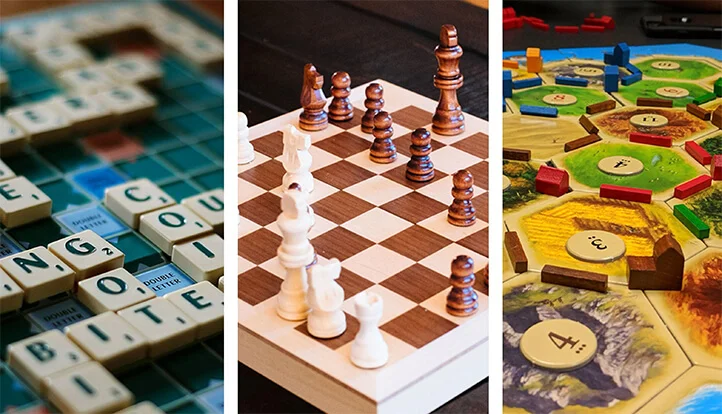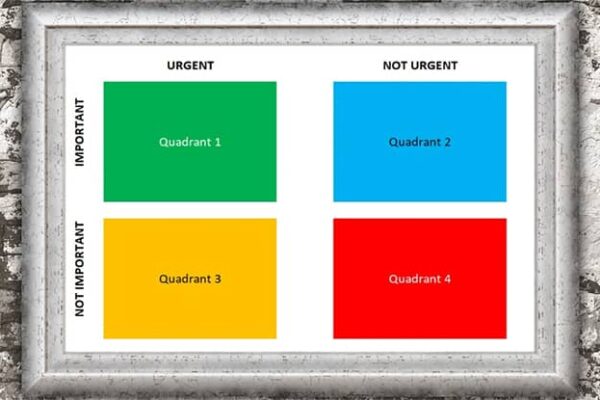From classic masterpieces like chess and checkers to new captivating games such as “Catan,” “Codenames,” and “Azul,” board games attract people of all ages and backgrounds. Beyond simply being fun and engaging, they offer several psychological benefits for players.
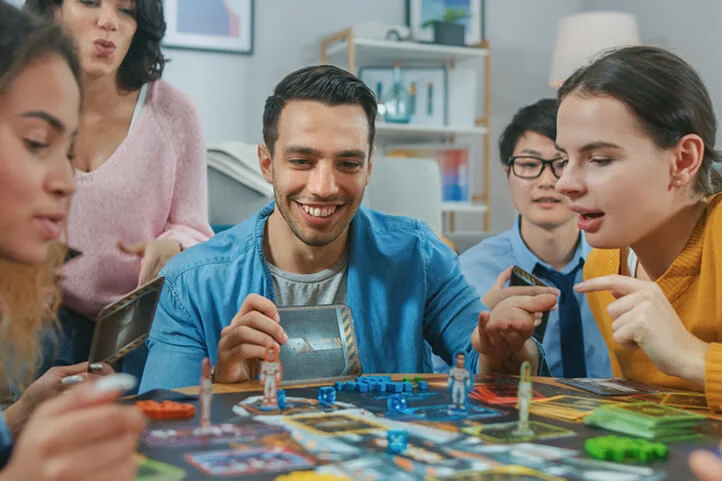
Social Interaction and Communication
In today’s world, where much of our interaction has moved online, board games present a truly invaluable opportunity for live, face-to-face interaction. Sitting together at a game table, participants have a chance to break away from screens and immerse themselves in an atmosphere of genuine human presence, warmth, and sincere emotions.
Board games literally compel players to actively communicate, coordinate their actions, and find common ground. In this process, a whole set of essential skills related to effective communication and fruitful social interaction is inevitably trained.
A Reason for Face-to-Face Communication
Unlike computer games or other digital entertainments, board games actually encourage people to sit together at the same table and interact directly with each other face-to-face. This creates an atmosphere of warmth, live presence, and personal contact, which is becoming increasingly rare in our tech-driven world filled with gadgets and virtual communication.
Instead of sitting side by side, buried in phones or tablets, board games push people towards active verbal and non-verbal interaction, such as:
- exchanging remarks and jokes;
- making eye contact;
- expressing emotions physically through gestures and facial expressions.
This lively, multifaceted communication is much richer and more meaningful than virtual interaction because it fosters a deeper understanding of one another.
Developing Communication and Cooperation Skills
During the game, participants must constantly communicate, discuss strategies, make joint decisions, and reach a consensus, which requires the development of numerous important social and communicative skills, such as:
- the ability to express thoughts clearly and convincingly;
- the skill of listening to and understanding the opinions of other players;
- negotiating skills and the ability to find compromises;
- learning to give constructive criticism and maintain good sportsmanship;
- teamwork and role distribution when necessary.
These skills are easily transferable from the gaming world to everyday life and professional settings, helping people to interact and collaborate more effectively.
Strengthening Social Bonds
Playing board games together can be a great way to bond groups such as families, friends, or colleagues. During the game, the following are created:
- shared positive memories and emotional experiences;
- opportunities for friendly interaction, jokes, and emotional release;
- an atmosphere of trust, relaxation, and free expression of emotions;
- chances to get to know each other better, seeing people in a new light.
This strengthens social bonds within the group, helps to smooth out existing contradictions and conflicts, and provides a shared hobby that can become a reason to meet new people and expand social circles through gaming communities, clubs, and themed events.
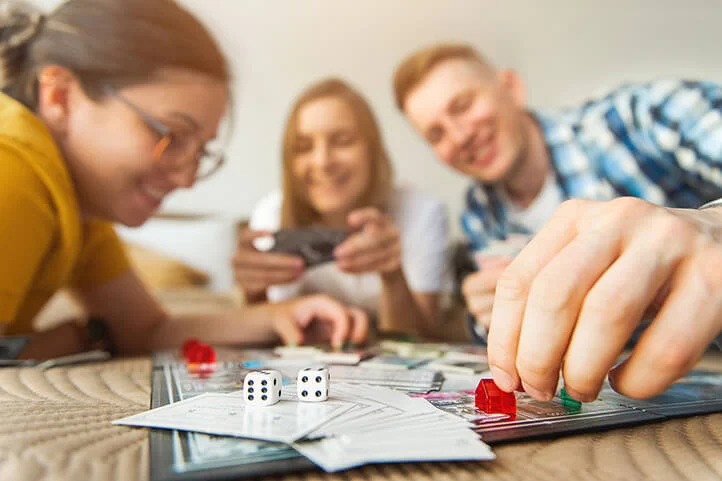
Cognitive Development
In recent years, board games have been increasingly viewed not just as entertainment but also as a serious tool for cognitive development and mental exercise. It’s no surprise, as many of them involve complex intellectual challenges that engage various areas of the brain.
From solving logical puzzles and memory exercises to building clever strategies and developing spatial thinking, board games activate a wide range of cognitive skills. And this training takes place in an enjoyable, subtle way, encouraging players to overcome new mental barriers with interest.
Training Memory, Logic, and Strategic Thinking
Many board games require memorizing rules, complex combinations, and strategic planning, which contributes to the development of:
- short-term and long-term memory;
- logical thinking and situational analysis;
- critical thinking and risk assessment;
- the ability to calculate moves and their consequences ahead of time;
- strategic planning skills and playing proactively;
- mental flexibility and the ability to quickly adjust plans.
For example, chess and other strategic board games develop the ability to anticipate events many steps ahead, build complex hypothetical chains, and make quick decisions.
Enhancing Concentration
In our world, full of visual and sound distractions, attention has become very scattered and unstable. Success in many board games directly depends on a player’s ability to concentrate and avoid distractions.
Most serious board games require sustained attention over relatively long periods. This helps to train concentration skills and develop multitasking abilities, allowing players to switch between different aspects of the game.
Solving Puzzles and Challenges
Some types of board games, like “Blokus,” “Codenames,” “Evolution,” or various versions of “Activity,” offer interesting logical puzzles, creative tasks, and non-trivial intellectual challenges of varying complexity. To solve them, players need to:
- apply non-standard, lateral thinking;
- form new associative connections;
- develop spatial and figurative thinking;
- use abstract thinking skills;
- demonstrate creativity and resourcefulness.
By solving such puzzles, people train important cognitive skills that will come in handy both in daily life and professional activities. For example, solving puzzles is thought to be beneficial for programmers, as it develops algorithmic thinking.
Improving Attention to Detail
Many board games require heightened attention to small nuances and details, fostering the important skill of attentiveness. Missing a minor detail can lead to losing a significant advantage or making a mistake that affects the outcome of the entire game.
To avoid this, players are forced to constantly keep all game events in focus, track piece positions, and adjust combinations and element arrangements. This skill is incredibly useful in many professional areas, where neglecting details can lead to serious consequences.
Developing Imagination and Creativity
While many board games are built on strict rules and limitations, they also provide space for developing creative and imaginative thinking. Games like “Dixit” or “Codenames” require players to operate with abstract associations, think unconventionally, and demonstrate creativity.
Sometimes, players need to imagine non-existent objects, situations, or even entire worlds, forming vivid visual images in their minds. This fosters creative potential, helping to solve unconventional problems and generate innovative ideas.
By enriching their experience with board games, people expand the boundaries of their mental abilities and enhance mental flexibility.

Emotional Management
Emotions are an integral part of human life. They color our experiences, influence decisions, and largely determine overall well-being. However, people often find it difficult to cope with overwhelming emotions, whether it be anger, frustration, anxiety, or euphoria. In this regard, board games can serve as an excellent training ground for safely practicing emotional management skills.
During the game, participants are immersed in a whirlwind of emotions, where they must cope with the joy of victory, the disappointment of defeat, the excitement of competition, and the frustration of unlucky moves. However, unlike real life, where such emotional outbursts can have serious consequences, the gaming space provides a controlled environment for their expression and practicing self-regulation techniques.
On the game board, players can freely express any emotions without fear of harming themselves or others. At the same time, it offers a valuable opportunity to practice restraining, redirecting attention, and reacting rationally. Essentially, board games become a kind of emotional gym, helping to develop resilience and vital self-control skills.
Learning to Manage Disappointment and Success
In the heat of competition and under the influence of game emotions, participants often have to deal with both the joy of victory and the disappointment of defeat:
- Graciously accept defeat without spreading negative emotions to others.
- Maintain composure and avoid excessive gloating in victory.
- Learn from mistakes, analyze the causes of failure, and try not to repeat them.
- At the same time, adequately and moderately express joy in winning without hurting the feelings of the losers.
Regular practice in board games helps players gain valuable experience in constructively dealing with both success and failure, enhancing emotional maturity.
Reducing Stress and Anxiety
In today’s fast-paced life, filled with numerous tasks, obligations, and sources of stress, it’s crucial to have an area where one can disconnect from daily worries and problems. An exciting and light gaming process can serve as an excellent way to relieve accumulated tension, take a break from routine, and dispel anxious thoughts.
Immersing oneself in the atmosphere of a board game allows people to focus on the game board, pieces, combinations, and interaction with other players. This helps the mind temporarily shift away from regular concerns, providing relaxation and reducing levels of stress and anxiety. After a board game, people feel more relaxed, refreshed, and ready for new challenges.
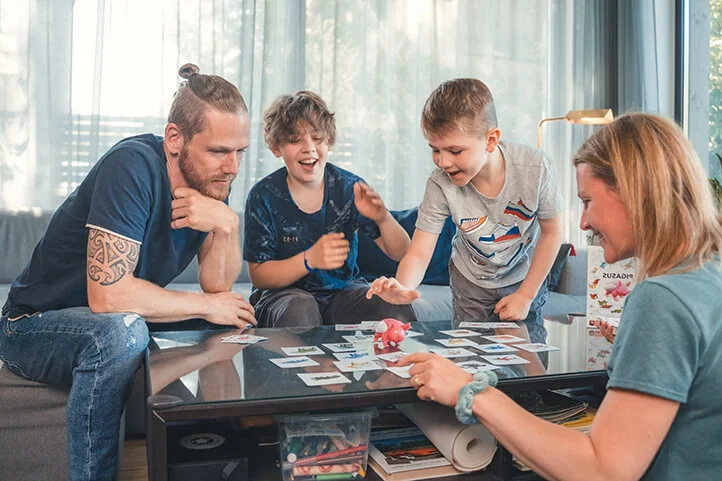
Family Values
Board games can become a true lifeline for strengthening family bonds. Gathering around the game table, family members get a rare opportunity to take a break from everyday hustle and focus on the most important thing—communication and spending quality time with their closest loved ones.
Additionally, playing board games together creates ideal conditions for forming positive family traditions and memories passed down from generation to generation. During fun and exciting game sessions, funny stories and comical situations often occur, which stay in memory for a long time, cementing family ties with warmth and pleasant emotions.
The atmosphere of shared leisure also opens up new horizons for deeper mutual understanding among family members, helping them better recognize each other’s personalities and behavioral patterns. All of this contributes to family cohesion, laying a solid foundation for building harmonious relationships for many years to come.
A Reason for Family Time
Families often face the challenge of lacking time together due to work schedules, school obligations, meetings, and other daily activities. Board games provide the perfect reason for the whole family to gather around the same table and spend time together engaged in a fun and beneficial activity.
These family game nights gradually turn into a highly anticipated and cherished tradition that strengthens connections between family members. Children learn from an early age to value family unity and the importance of spending time together.
Creating Positive Memories
During fun and exciting board games, various funny and comical situations arise, creating positive shared memories that will be passed down from generation to generation:
- funny stories and mishaps at the game table;
- especially memorable gaming moments and narratives;
- a sense of unity and safety in the family atmosphere;
- positive emotions associated with certain games, forming nostalgic feelings.
Such memories not only strengthen family bonds in the present but also lay the foundation for maintaining warm connections with relatives in the future, as children grow up and start families of their own.
Strengthening Family Bonds
Regular family game nights promote closer cohesion and better understanding among family members:
- The opportunity to see the personal qualities and behavioral traits of loved ones in a relaxed gaming environment.
- Creating conditions for open conversations on various topics in a comfortable atmosphere.
- Emotional bonding between parents and children through shared fun and experiences.
- The formation of a common family hobby and interest.
- The appearance of new family traditions, rituals, and stories.
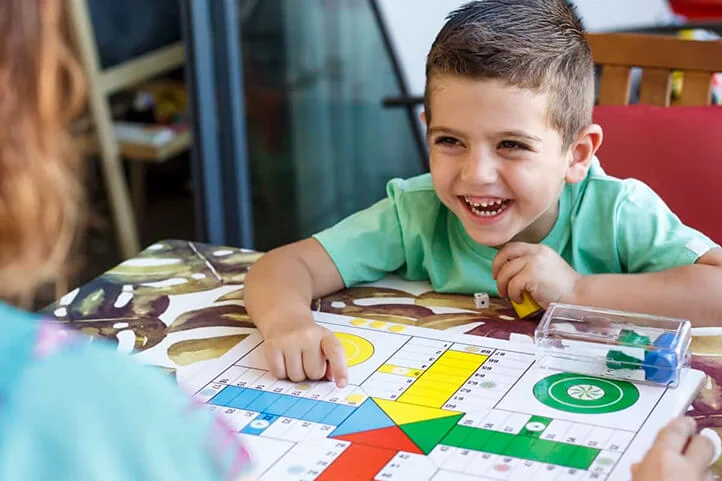
Adaptation to Different Ages and Needs
One of the main advantages of board games is their remarkable flexibility and ability to adapt to almost any age and development level of participants. Today, there is such a wide selection of games of varying complexity and themes that even the most demanding player will have no problem finding the right option.
Whether it’s preschool children or the elderly, teenagers or adults, enthusiasts of intellectual games or people with special needs—the gaming industry offers solutions perfectly suited to the interests and abilities of each of these categories. Board games skillfully balance between entertainment and educational components, offering engaging plots while subtly training important skills.
It is this unique versatility that makes board games a truly inclusive hobby, accessible to people from all walks of life. The game becomes an excellent platform for intergenerational interaction and inclusivity, where all participants can enjoy and benefit regardless of personal circumstances.
Games for Children of Different Ages
There are many games on the market designed specifically for different age groups of children:
- Preschoolers: games with simple rules and large pieces that promote fine motor skills, color recognition, counting, and memory development.
- Elementary School Children: developmental and educational games for training memory, attention, quick reaction, logical thinking, reading, and literacy.
- Teenagers: more complex strategy games for developing spatial thinking, planning, decision-making, and social skills.
Thanks to such a wide variety, parents can choose games that best match the age and development level of their children at each stage of growing up.
Games for Adults
In addition to their entertainment value, board games for adults often focus on training certain skills and abilities relevant in adulthood:
- improving concentration, memory, and cognitive abilities;
- developing multitasking and mental flexibility;
- training strategic and analytical thinking;
- refining communication skills and teamwork abilities;
- reducing stress and preventing age-related cognitive decline.
By choosing games of appropriate complexity and focus, adults can continue to develop important qualities, keep their minds sharp, and prevent cognitive decline.
Games for People with Special Needs
Some board games are designed or can be adapted specifically for people with disabilities, such as:
- Visual Impairments: games with large pieces and sharply contrasting color palettes.
- Hearing Impairments: games that minimally rely on sound cues.
- Speech Impairments: games that focus on non-verbal components.
- Motor Impairments: games with easy-to-handle elements.
There are also many board games developed for enhancing various cognitive abilities in people with autism spectrum disorder, dyslexia, dysgraphia, dyspraxia, and other conditions.
Thanks to this variety, board games can benefit absolutely everyone, regardless of age, physical abilities, or cognitive features.
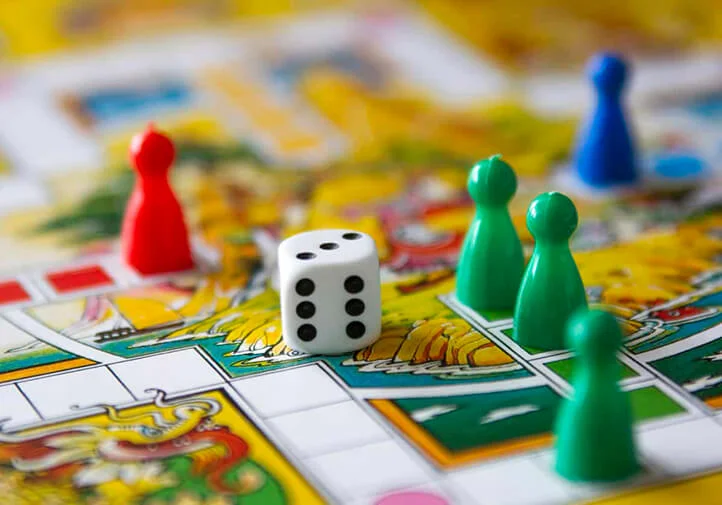
Conclusion
From strengthening social connections and family values to developing cognitive abilities, emotional regulation, and life skills—board games offer a wide range of psychological benefits.
Regular board games help train communication skills, cooperation abilities, strategic and logical thinking, concentration, and many other important qualities. In addition, they create a safe and controlled environment for processing emotions.
Board games hold particular value for families, where they become a catalyst for strengthening bonds, creating shared joyful memories, and fostering new traditions. In a world filled with gadgets and virtual reality, they teach children to appreciate the live presence of loved ones and the importance of spending time together.
It is essential to remember that behind the simplicity and entertainment of board games lies a powerful potential for self-improvement, mental training, and the development of key skills. Therefore, do not underestimate this leisure activity—take a closer look at board games and discover a fascinating world full of benefits for your mental and psychological well-being. By making board games a regular tradition with family, friends, or colleagues, you will soon notice their positive impact!
